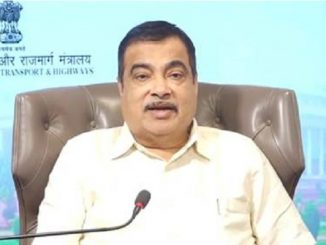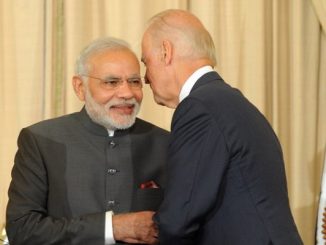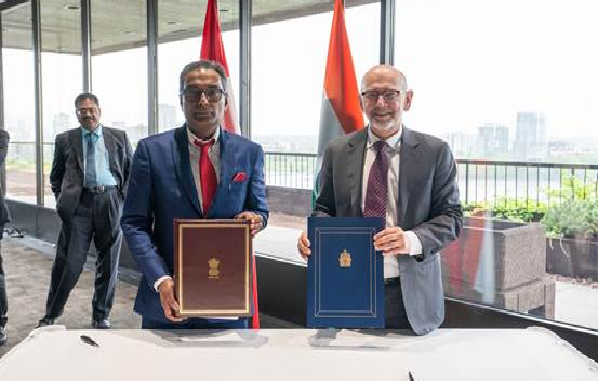
May 23:Two MoUs were renewed at the 7th India-Canada Joint Science and Technology Cooperation Committee (JSTCC) meeting that took place in Ottawa, setting priorities for the next period in a variety of innovative fields.
The MoUs had been signed by the Ministry of Science and Technology with the Natural Sciences and Engineering Research Council of Canada (NSERC) and National Research Council Canada (NRC), respectively, under India and Canada’s agreement signed in 2005.
The Joint Committee Meeting was co-chaired by Dr. Srivari Chandrasekhar, Secretary at the Indian Department of Science and Technology (DST), and David Morrison, Deputy Minister of International Trade at Global Affairs Canada.
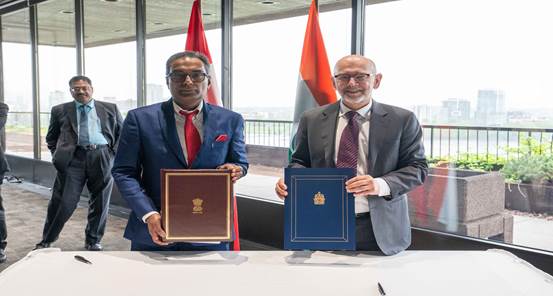
Dr. Chandrasekhar, Secretary, DST, elaborated on the focus areas of the collaboration between the two countries like the National Missions, quantum computing, AI, cyber-physical systems, and so on. He also pointed out that a large number of Indian students are studying in Canadian Universities and the renewal of the MoUs would help intensify the exchange of ideas and expertise between the two countries.
High Commissioner of India to Canada, Ajay Bisaria, and Canadian High Commissioner to India, Cameron MacKay, also participated in the event. Other attendees included representatives from several ministries and research institutions from both countries.
India and Canada benefit from strong bilateral relations and are committed to deepening ties, with Science, Technology, and Innovation being key pillars of the relationship.
The meeting provided an opportunity to articulate a renewed strategic direction for the implementation of the 2005 Agreement for Scientific and Technological Cooperation between the Government of the Republic of India and the Government of Canada.
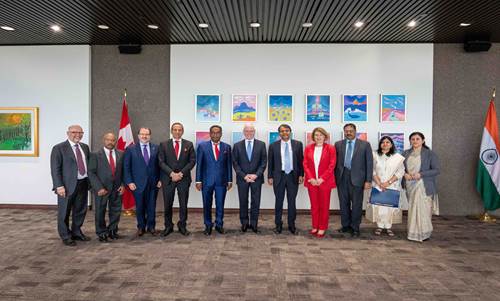
Under the terms of the Agreement, the Joint Science and Technology Cooperation Committee, in principle, meets every 2 years to review ongoing collaboration between Canadian and Indian researchers and innovators and set priorities for the next period in a variety of innovative fields such as agriculture and food security, health sciences and related technologies, clean technologies and environmental research, marine and polar research, quantum and artificial intelligence and human capacity development and researcher mobility.
Both countries agreed to continue monitoring progress on key priorities on bilateral Science, Technology, and Innovation (STI) collaboration for 2022-2024.
<><><><><>
Disclaimer: We donot claim that the images used as part of the news published are always owned by us. From time to time, we use images sourced as part of news or any related images or representations. Kindly take a look at our image usage policy on how we select the image that are used as part of the news.
